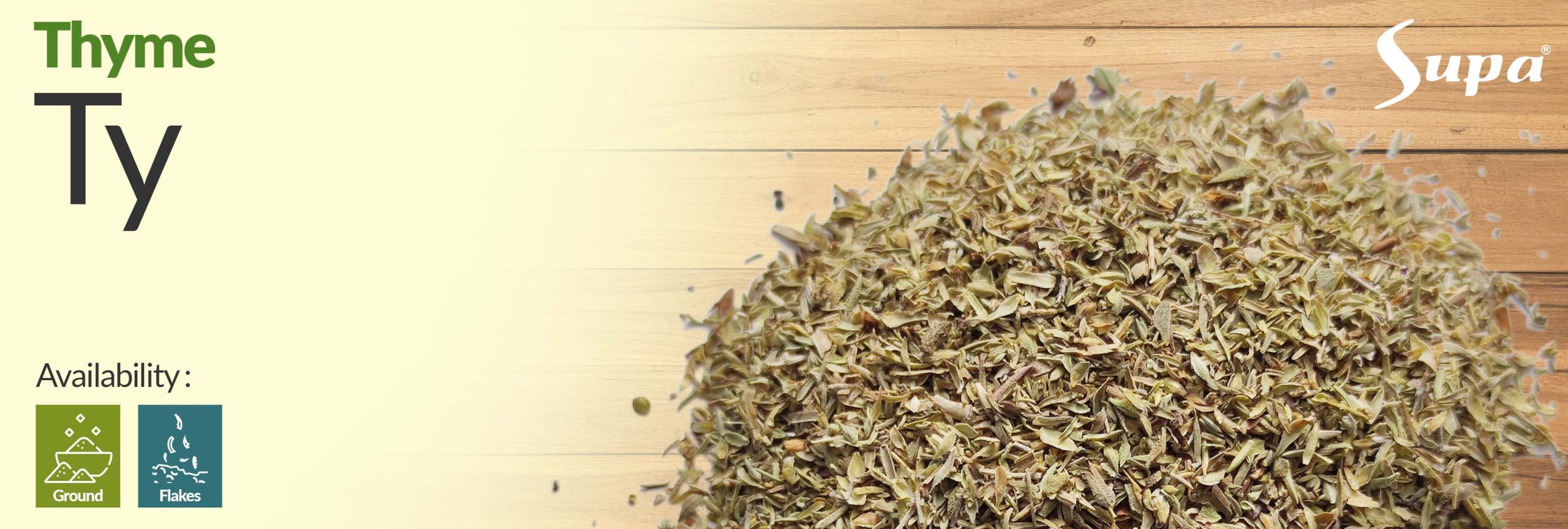
Thyme, scientifically known as Thymus vulgaris, carries a rich history that intertwines with culinary, medicinal, and cultural traditions. Native to the Mediterranean region, thyme has been cherished since ancient times for its aromatic leaves and potential health benefits. Ancient Egyptians used thyme in embalming practices, while the ancient Greeks associated it with courage and used it as a fragrant addition to baths and incense.
Medicinal uses of thyme have been recorded throughout history. Its essential oil was believed to have antiseptic properties and was used to treat respiratory issues. Thyme was also incorporated into poultices and teas to alleviate various ailments. This herb’s popularity as a medicinal plant continued through medieval times and beyond, eventually influencing its integration into modern herbal remedies.
In the culinary realm, thyme’s earthy and slightly minty flavor has made it a staple in various cuisines, including Mediterranean and French cooking. It pairs well with meats, vegetables, and sauces, adding depth and complexity to dishes. Thyme’s versatility extends to its inclusion in herbal teas and infusions, where it continues to be appreciated for its potential soothing and aromatic qualities. With its enduring presence in both the culinary and medicinal arenas, thyme exemplifies the seamless blend of flavor and tradition that defines its significance throughout history.
Flavor: Thyme has a distinctive flavor that can be described as earthy, slightly minty, and somewhat floral. It also carries a subtle lemony note. Thyme's flavor is robust but not overpowering, making it a popular herb for enhancing the taste of both savory and sometimes sweet dishes. Taste: The taste of thyme is characterized by its earthy and herbal notes. It has a slightly astringent quality that can contribute to the overall taste profile of a dish. Thyme's taste becomes more pronounced when it is cooked or heated. Aroma: Thyme has a strong and aromatic scent that is often described as woody, with hints of pine, mint, and citrus. The aroma is released when the leaves are crushed or chopped, and it intensifies when thyme is cooked or added to dishes.
Culinary Herb: Thyme is widely used as a culinary herb to flavor a variety of dishes. Its earthy, slightly minty, and lemony flavor makes it a versatile addition to soups, stews, roasted meats, poultry, vegetables, and sauces. Herbal Seasoning: Thyme is often included in spice blends and herb mixes, such as herbes de Provence. These blends can be used to add depth of flavor to various recipes, particularly those inspired by Mediterranean cuisine. Teas and Infusions: Thyme leaves can be used to make herbal teas and infusions. Thyme tea is sometimes consumed for its potential health benefits, including its traditional use as a soothing remedy for respiratory discomfort. Aromatherapy and Essential Oil: Thyme essential oil is extracted from the leaves and used in aromatherapy. It's believed to have properties that promote relaxation, relieve stress, and alleviate respiratory issues when diffused or diluted for topical use. Medicinal Uses: Thyme has been used in traditional medicine for its potential health benefits. It's believed to have antiseptic, antibacterial, and antispasmodic properties. Thyme infusions and teas are sometimes used to soothe coughs and support respiratory health.
Origin : Turkey Botanical Name : Thymus vulgaris Composition : Thyme Color : Brownish Green Moisture Content : Max 12% Shelf Life : 12 Months Loadability : 20 FCL Package : Carton Packing *For more detailed specifications, please feel free to contact us.
Company Profile Brochure PDF

